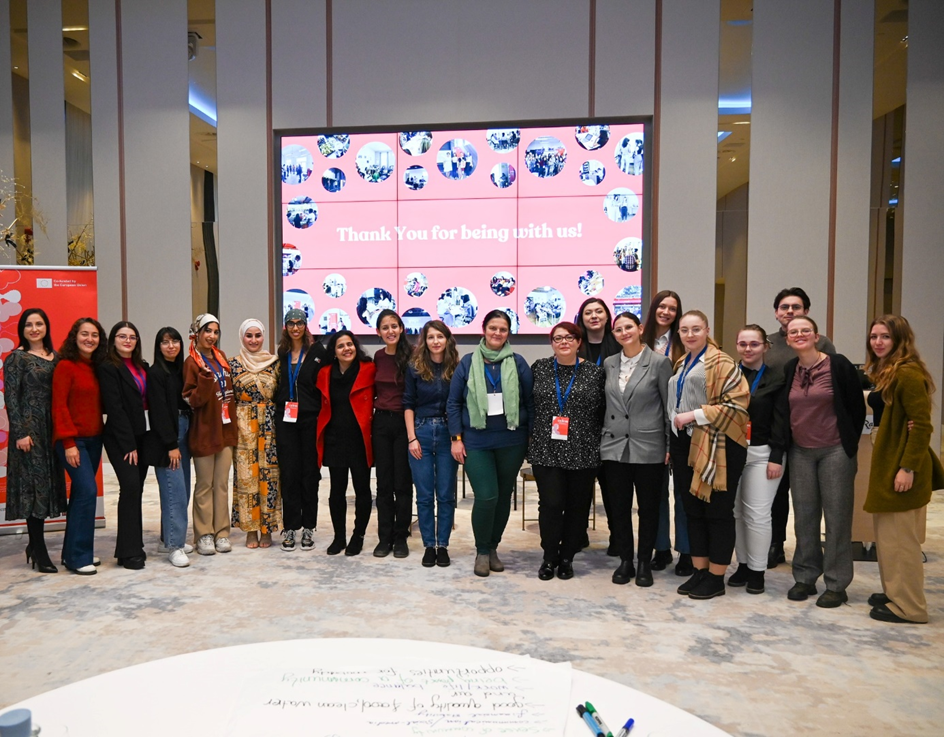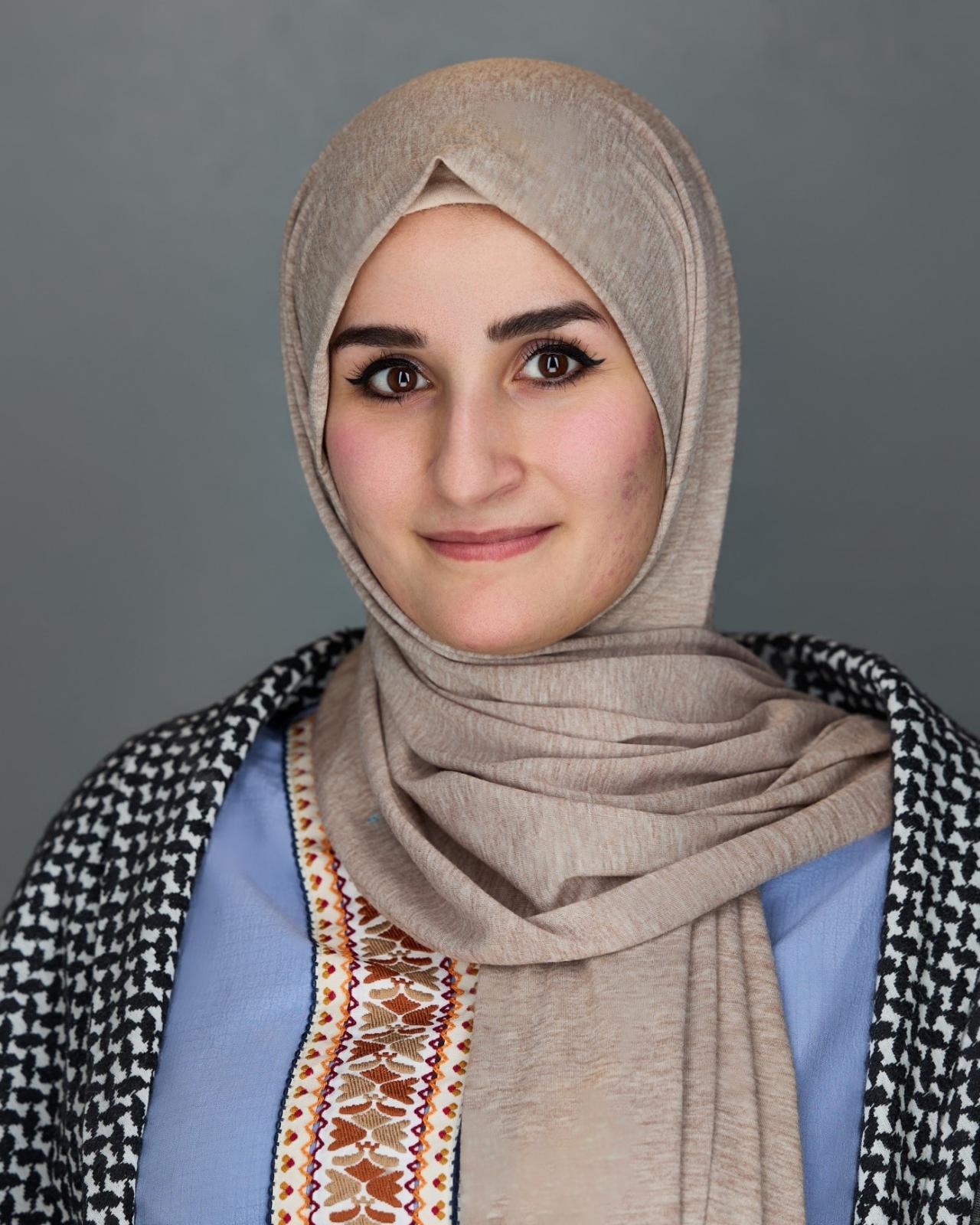- A New Beginning in Romania
In 2019, Esraa arrived in Romania to receive a prestigious scholarship to pursue higher education. Her academic journey culminated in a master’s degree of Nursing specialized in intensive care, a testament to her dedication and intellectual rigor. Yet, despite her academic achievements, Esraa found it impossible to practice her profession in Romania. The country’s regulations require citizenship or a specific residence permit to practice medicine, a hurdle faced by many foreign-trained professionals like Esraa.
However, this challenge did not discourage her. On the contrary, it propelled her into a new career
- A New Chapter: Family and Challenges
One aspect of life in Romania that has given Esraa great satisfaction is the freedom to practice her religion. As a Muslim woman, Esraa wears her hijab with pride and is committed to her faith. In Romania, she has found that she can practice her religion openly, without fear of discrimination. She is able to pray freely and wear her hijab in public spaces without facing overt hostility. This level of religious freedom is something Esraa deeply appreciates.
While she occasionally notices curious or lingering looks, Esraa has discovered that most Romanians are understanding when they engage in conversation. These moments of connection often help to bridge cultural differences and foster mutual respect. For Esraa, being able to live her faith openly in a predominantly Christian country is a huge relief, and it has helped her feel more at home in Romania.
However, Esraa's positive experiences of religious freedom in Romania are contrasted by the discrimination she has witnessed against people from certain countries. While religious expression is largely respected, nationality can still be a source of prejudice and exclusion. Esraa is particularly concerned about the racism that affects people from certain regions, especially black people and people from African countries.
One of the most glaring examples of this discrimination is the practice by some Romanian banks of refusing to open accounts for nationals from certain countries. This discriminatory policy is not based on any individual’s behaviour but solely on their country of origin, leading to significant challenges for migrants trying to integrate into Romanian society. Esraa has actively participated in advocacy efforts to eliminate these practices, often accompanying affected migrants to banks to challenge the unjust policies.
Esraa’s involvement in these advocacy efforts has been driven by her deep commitment to social justice. She works closely with an advocacy group focused on migration issues, the Cluj International Citizens Council, an organization launched under the European project MigrantVoicesHeard which maintains direct contact with Romanian ministries. This group is regularly consulted by the government—every two or three months, depending on the agenda—to discuss and address migration-related issues. Esraa values this initiative, as it provides a platform for those most affected by migration policies, including herself, to voice their concerns and contribute to policy development.
- Becoming an Advocate: Expert by Experience
Esraa’s experiences with the Romanian immigration system, combined with her personal journey as a migrant, have made her an invaluable resource for others in similar situations. She often describes herself as an “expert by experience, not by education,” underscoring the deep understanding she has gained from living through the challenges that many migrants face.
Today, Esraa works as an immigration consultant with the International Organization for Migration (IOM). Her role is multifaceted—she provides crucial support to migrants, connecting them with the authorities, sharing vital information, and helping them navigate the often-complicated legal and bureaucratic processes. This is not her first stint with the IOM; three years ago, she also worked as a translator and interpreter for the organization, both on a contract and volunteer basis. Her ability to communicate effectively in multiple languages, including Romanian, is a critical asset in her work.
One of Esraa’s key insights is the importance of learning Romanian. She firmly believes that speaking the local language is essential for asserting one’s rights. For instance, if she encounters a problem, she meticulously researches the relevant laws and regulations to ensure that she is not being mistreated. Unfortunately, many governmental websites in Romania are only available in Romanian, posing a significant barrier for non-Romanian speakers. Esraa’s work with the IOM includes translating these websites and key legal documents, particularly those related to residency and citizenship. Her efforts are crucial to making vital information accessible to migrants, but she emphasizes that learning the local language remains indispensable, especially outside of major cities like Cluj, where English is less commonly spoken.
Conclusion
Esraa Abdallah’s journey is far from over. She continues to advocate for a more inclusive and just society in Romania, where all migrants, regardless of their background, can access the resources and support they need. Her work, rooted in her own experiences, is a beacon of hope for many who face the same struggles she once did. Through her efforts, Esraa is helping to build a more welcoming Romania, one where diversity is not just tolerated but celebrated.

Photo captured during a capitalization event dedicated to empower migrant women employability under the European project ENFEM

